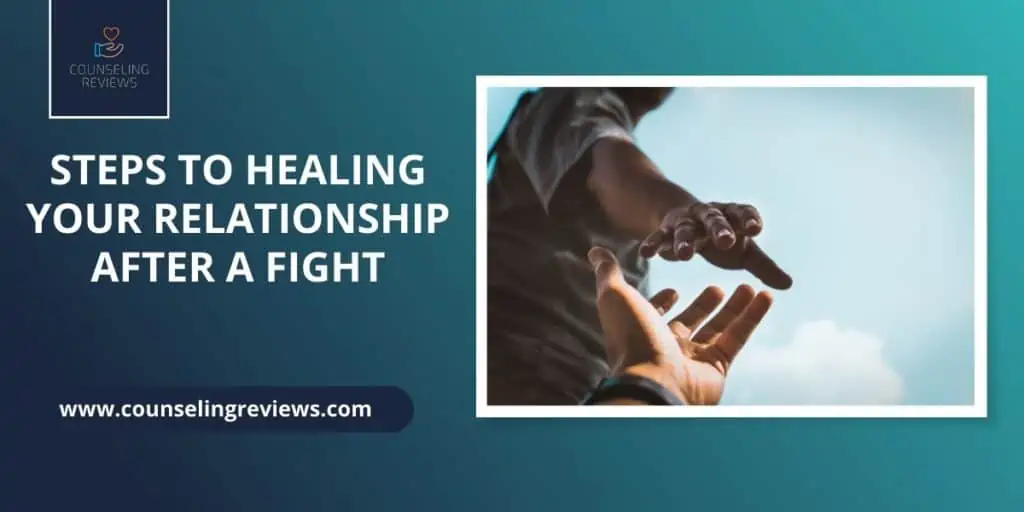Conflicts are an unavoidable yet stress-inducing part of any romantic relationship. Most conflicts are small and become a non-issue with the passing of a given situation – such as a disagreement over where to go for dinner. However, others are more serious in nature and are jarring enough to alter the course of a relationship, setting the tone for feelings of resentment and emotional disconnectedness. See how relationships can be managed during a pandemic.
When handled appropriately conflict can be a healthy part of a relationship, forcing partners to come to terms with the areas of the relationship that need improvement. Here are some ways to successfully mitigate conflict with your partner and end each fight on a note of healing and clarity.
What Is a “Healing Relationship?”
A “healing relationship” forms the cornerstone of every successful therapeutic journey. Beyond just the clinical context, such relationships extend to various aspects of our lives, including interactions with friends, family, and even colleagues, contributing significantly to both psychological and physical well-being. These connections can have profound effects on personal growth, happiness and healing.
For example, healing in romantic relationships can emerge from experiences where trust was previously betrayed, like a deceptive ex-partner, and then subsequently rebuilt with a new partner who demonstrates genuine trustworthiness. Likewise, even in everyday encounters, such as a teacher’s inadvertent public correction of a wrong response, there can be opportunities for healing as it encourages learning and resilience.

7 Steps to Healing Relationships After a Fight
Initiating a Purposeful “Timeout”
Dealing with a heated argument or emotional conflict can be challenging and counterproductive. That’s why it’s crucial to implement intentional timeouts either during the argument or immediately afterward.
To prevent exacerbating the situation, it’s beneficial to take a brief break, offering both parties some breathing space. Simple actions like stepping away for a glass of water or practicing calming breathing exercises can help in regaining composure. Some couples find it helpful to establish a pre-agreed plan for handling arguments, permitting one another to disengage temporarily to prevent escalation.
Alternatively, they may schedule a later time to revisit the issue when emotions have subsided. The key is to wait until both individuals are calm and prepared to discuss the matter objectively.
Extending an Olive Branch When the Timing is Right
After both parties have had a chance to cool down, it’s essential not to cling to feelings of anger and hurt, as doing so can intensify suffering childhood trauma and jeopardize the healing relationship. Instead, consider extending an “olive branch” to initiate the healing process.
Offering an apology doesn’t imply taking sole responsibility for the argument; it signifies acknowledging that both individuals involved have been hurt, expressing care and respect for your partner, and a desire to mend the relationship.
This olive branch can take various forms:
- Verbal apology addressing the specifics of the argument, such as “I apologize for misunderstanding your intentions” or “I’m sorry for bringing up [topic] during our argument.”
- Physical gesture of warmth, like offering a hug.
- A small, encouraging invitation to engage in a conversation, such as handing your partner their favorite snack.
Extending the olive branch in this way can defuse tension and pave the way to move forward for a more constructive and productive conversation during the reconciliation process.
Engage in Active Listening and Acknowledge Your Partner’s Perspective
Often during arguments, we become so focused on expressing our own viewpoint that we neglect to consider the other person’s feelings and perspective. Once both individuals are in a more rational state of mind, it’s crucial to actively listen to your partner and acknowledge any pain or hurt you may have caused. Here’s how you can practice effective communication, compassion and empathy:
- Practice reflective listening by repeating what you hear your partner say back to them. For example, you might say, “It sounds like you felt hurt when I interrupted you,” which validates their feelings when they’re upset.
- Acknowledge their pain and perspective, even if you still disagree. You can express understanding with a statement like, “I’m sorry that [topic] made you feel this way.”
While it can be challenging to hear your partner’s criticisms during an argument, it’s essential not to become defensive. Active listening is a valuable tool in support of fostering healthy communication, making your partner feel heard and respected.
Share Your Perspective Without Blame
When it’s your turn to express your viewpoint in the argument, it’s important to avoid blaming your partner and instead present your concerns in a neutral manner. Here are some guidelines for sharing your side without assigning blame:
- Refrain from starting statements with “you always.” Instead of saying, “You always leave the kitchen such a mess,” try a more neutral approach like, “I’ve had a particularly stressful week at work, and I would appreciate coming home to a clean kitchen. Could you please put the dishes in the dishwasher?”
- Use “I statements” instead of “you statements.” “You statements” tend to imply blame, which can provoke a defensive response. Transform them into “I statements” to reduce blame and foster better communication. For instance, instead of saying, “You just spend money without thinking about the financial consequences,” you can say, “I feel anxious when I see significant charges on our accounts that I don’t recognize. I want to ensure we’re both aligned on our savings goals.”
By sharing your perspective in a non-blaming manner, you can promote a more constructive and less confrontational discussion during disagreements.
Addressing the Root of the Issue
After both individuals have calmed down, it’s crucial to talk and revisit the core of the problem. Take the time to uncover what truly happened that sparked the intense emotions in both of you.
For instance, if the argument was initially about the dishes, the therapist might delve deeper to determine if it’s genuinely about the dishes themselves or if there’s an underlying issue, such as resentment over an unequal division of household chores. Perhaps it even connects to deeper concerns about emulating your parents’ relationship dynamic.
Identifying and addressing the root cause is essential in preventing the same argument from resurfacing. You are more likely to reach a solution or find common ground when both parties are thinking rationally. Ensure that both of you have had ample time to process your reactions and are no longer emotionally charged.
Collaboratively Seeking Practical Solutions
Once you’ve given each other the opportunity to speak and express your concerns and feel heard and understood, work together to find practical solutions.
Consider the example of jealousy. If insecurity in your relationship is causing jealousy, you may start recognizing patterns of controlling behavior. You might always want your partner to yourself or expect special treatment in group settings, leading to frustration and anxiety when expectations aren’t met.
While these patterns may not disappear overnight, you can identify small gestures or actions that can make each other feel more secure. This could involve showing extra affection in situations triggering past jealousy or committing to fully listening to each other’s perspectives without immediately becoming defensive.
Effective communication and collaboration can help loosen the grip of insecurity, allowing both partners the ability to work together with a team mentality.
Considering Couples Counseling When Needed
If you and the friends, your partner struggle to find mutually agreeable solutions or face difficulties implementing them, it may be wise to seek external assistance.
Repeatedly arguing about the same issues or encountering new conflicts can lead to frustration. Couples counseling and therapy offers a valuable resource for understanding each other’s thoughts, feelings, needs, and attachment styles. It equips you with the skills necessary to identify triggers and resolve conflicts in a healthy manner, including setting boundaries.
Couples counselors are trained to work with clients in various situations, such as infidelity, abuse, pre-marriage concerns, parenting challenges, financial issues, and more. They maintain a neutral and objective stance while providing the tools needed to strengthen and heal your bond and resolve relationship issues.
Healing a relationship after an argument requires time, persistence, and patience. By effectively communicating and problem-solving together, you can navigate through the pain, improve understanding, strengthen your relationship, create and discover solutions that work for both of you.
What does a healing relationship feel like?
A healing relationship feels like a sanctuary of trust, understanding, and emotional safety. It’s characterized by open communication, where both partners listen empathetically, validating each other’s emotions. In this nurturing environment, conflicts are opportunities for growth rather than threats. It feels like a journey towards mutual healing, where emotional wounds are acknowledged, forgiven, and transformed into shared strength. There’s a deep sense of connection and a commitment to supporting one another’s well-being. It’s a place where love and compassion thrive, and where both individuals feel valued, respected, and accepted for who they are, fostering a profound sense of harmony and fulfillment.
Conclusion
Most couples often ignore their problems because they are comfortable with their regular flow. However, that can lead to unhealthy habits and may put a damper on the rest of their relationship. Depending on the seriousness of a relationship can determine what type of help a couple may need. See also, Relationship issues associated with age gaps might also interest you.





